In this much-heralded Shakespeare anniversary year, one might expect a certain respect for the works to prevail. In Holland it’s different. Under the tutelage of a Belgian, Ivo van Hove, a huge slice of Shakespeare’s history theatre has been filleted for the stage into something that might sit nicely on HBO alongside Game of Thrones. It opens at the Barbican on 22 April, a day before the official Shakespeare-death day four centuries ago. And it’s all in contemporary Dutch verse — four hours of it…
Kings of War starts with a photo, on a video-screen, of little Prince George. His infant form is followed in rapid succession by that of every English monarch back to Henry V. There, the display halts. Just below the screen ceremonial alarums are blasted out by four trombonists. The show, and pageantry, begin. There’s no doubt what this is to be about: the story of Plantagenet royalty as told by our greatest playwright.
Yet director Ivo van Hove and his designer Jan Versweyveld launch us into an emphatically modern world. The sleek actors of Amsterdam’s Toneelgroep, which van Hove has headed up for 15 years, march across a broad, busy, map-filled set, a military HQ buzzing with computers. The cast, ten men and four women, are dressed in natty suits, ties, shiny shoes: trouser suits, elegant dresses and high heels for the women. Everyone is miked. All the actors double or triple up.
What unfolds is a gripping reworking of a swathe of the history plays. It opens at the end of Henry IV, Part II, when Prince Hal purloins his dying father’s crown, and expands through a brisk Henry V and the three parts of Henry VI (though there’s very little there of the Wars of the Roses). It ends, after a spare and startling Richard III, with the enthronement of Richmond — cleverly played by the Henry V actor, Ramsey Nasr — as the first Tudor king, Henry VII.
There’s no whiff of a history lesson. Kings of War is fast, cinematic drama. Some action — soldiers partying before Agincourt, lords and princes being poisoned — takes place behind the set and is seen on the video-screen, shot in real time. There is no poetry, though plenty of subtlety — and bottomless cruelty. Surtitles in English reveal bits of the original (including, of course, ‘Now is the winter of our discontent…’) but the Shakespeare is largely simplified.
Van Hove spoke to me in February, via Skype, in a spacious office high in Amsterdam’s stately Stadsschouwburg, where Toneelgroep is based and where I was seeing Kings of War for a second time. Why take on this epic saga?
‘I had an idea about leadership in 2007. Then, I was making The Roman Tragedies, but I knew specifically that I wanted to address this theme. Leadership is one of the big issues we’ll have to deal with in the 21st century. Classical forms of leadership aren’t working. Henry VI is a very interesting character, in three very interesting plays. He is a leader inspired by extreme religion, in this case Christianity, and becomes utterly isolated because of it. He’s an ideologue, driven by religious thoughts and beliefs, valid in themselves but which don’t work politically. We actually began work on the set and bringing it all together about two years ago.’
Eelco Smits plays poor Henry as a bespectacled, autistic dork. His performance is, for a king, often cringe-makingly funny.
‘His advisors take over. At the end, he’s a human being but no longer a king or emperor. In Richard III [Gloucester is creepily acted by Hans Kesting in obscene tight trousers], you see of course the dark side of power, how Richard is driven only to get the crown. He wants to destroy and destroy and destroy: that is his right. He wants an empty world, with him alone in it.’
Normally, the no-nonsense, aquiline-featured 57-year-old lives in Amsterdam. At the moment van Hove is everywhere but. A Skype chat was the only option when I visited: he was in New York to direct on Broadway a production, now running, of Arthur Miller’s The Crucible with Ben Whishaw and Oscar-nominated Saoirse Ronan. Just before that, he was in Paris with Kings of War. ‘We did six totally sold-out performances. But French people coming to see Shakespeare, even with French surtitles, in Dutch?’
Van Hove lights up theatres internationally. He has brought shows to and directed in London numerous times. His most memorable Toneelgroep work at the Barbican in recent years was the aforementioned The Roman Tragedies, in 2009, a compression of Coriolanus, Julius Caesar and Antony and Cleopatra. How distinct from the latter does he think Kings of War is?
‘My real fear was that a relationship would be assumed. I didn’t want anyone to think, “Oh, Ivo just wants to repeat that success.” Yes, it is a large-scale production. There are many actors doing many parts combining around an idea. In The Roman Tragedies it was politics and political mechanisms. Here, as I say, it’s leadership.’
Van Hove somehow defines the phrase ‘mover and shaker’. Aggressively confronting plays, many of them classics, he demonstrates how they can be stripped down, radically adapted, sexed up and turned on their heads. His boxed-in, primal version of Miller’s A View from the Bridge in 2014, starring Mark Strong, galvanised London audiences. Its successor, Sophocles’ Antigone, with Juliette Binoche, was more icy, razor-sharp contemporary thriller than ruminative ancient tragedy. Both were in English.
When it comes to Shakespeare, van Hove has arguably done us a favour in releasing Henry VI from Renaissance blank verse. Not only has he done away with turgid tracts of the trilogy, all of which is from very early in Shakespeare’s career and a lot of it of questionable authorship; he has found a way of distilling the protagonist’s nightmare, which could be experienced by anyone of fragile disposition with a mandate to lead. A bullied schoolteacher comes to mind.
Shakespeare, as van Hove has repeatedly proven, is often vibrantly renewed when not done in English. Berlin’s Schaubühne currently has, for instance, a celebrated ‘mud’ Hamlet (a hit four-and-a-half years ago at the Barbican) and a groundbreakingly nasty Richard III in its repertoire. Neither staging gives a fig for Shakespeare’s language, because they don’t have to. Each is dramatically quite extreme, yet director Thomas Ostermeier respects the tragic essence of each.
The best As You Like It I’ve seen was, as it happens, in Hebrew, 15 years ago, in Israel. The best Hamlet I’ve seen was, by miles, Ingmar Bergman’s in 1987 at the National Theatre. Among other spectacular vulgarities, Hamlet, when abusing Ophelia, gobbed down her throat. A Kinnear or Tennant would never do that. British directors are too polite. It is, of course, to Shakespeare’s eternal credit that he can be reinvented in any language. In my view, he can fly higher when set free from English pentameters. This has occurred with pinpoint coherence in Kings of War.
Not all the news is good. I took along a Dutch acquaintance in February. Though a more refined speaker of English than most Brits — frequently the case with the educated Dutch — he’s no fan of Shakespeare. I’d hoped to bring the Bard home to him in his native tongue.
‘Why,’ he protested in the interval, ‘should I care about these people? What is this all about their power or lack of it? Plays should touch the heart. This does not.’
It’s a moot point. Kings of War is cerebral, but damned exciting. It is no fairy tale and not remotely romantic. My acquaintance’s misgivings aside, Kings of War has certainly done for Henry VI, at least, what many a Royal Shakespeare Company or other British production has not: brought scarily to life a labyrinthine 15th-century reign as a tale of compelling failure. Sketchy history, perhaps; recalcitrant poetry, sure. Pure theatre: yes.
Got something to add? Join the discussion and comment below.
Get 10 issues for just $10
Subscribe to The Spectator Australia today for the next 10 magazine issues, plus full online access, for just $10.

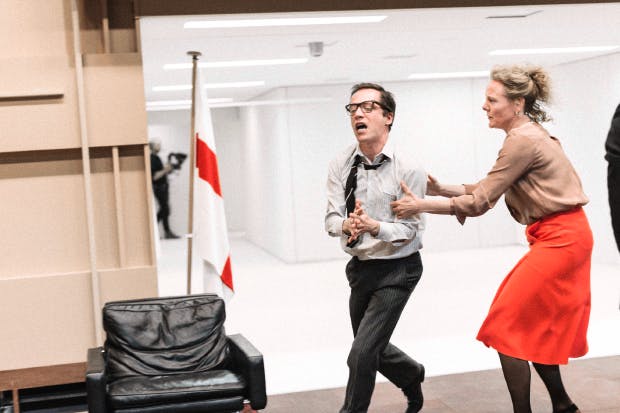
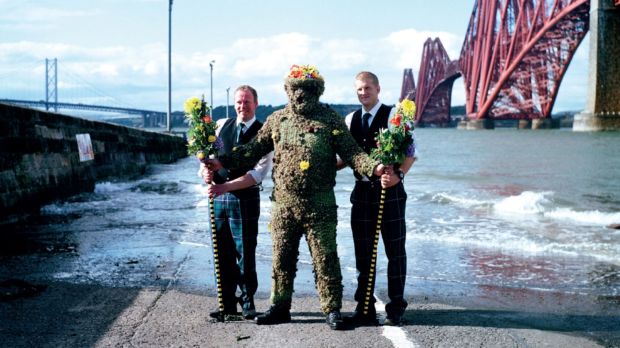
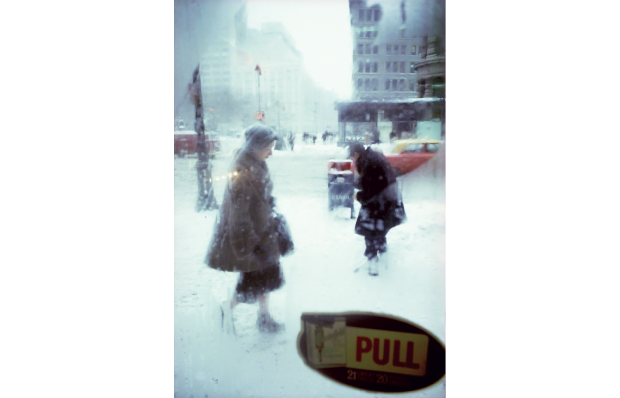


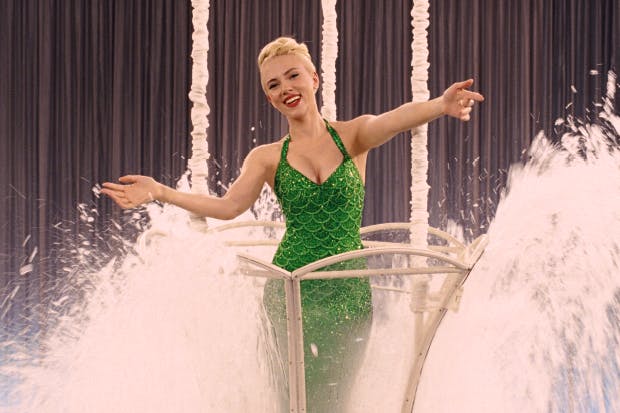
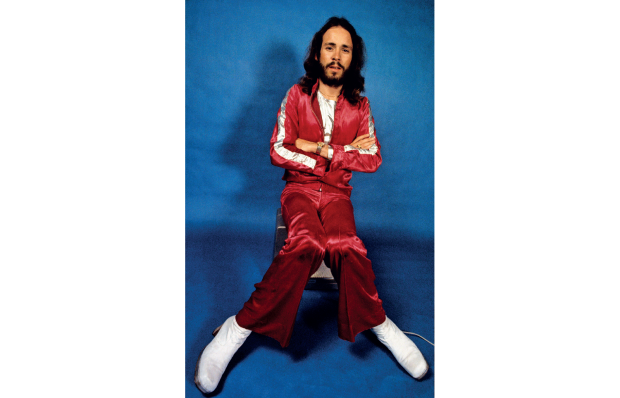






Comments
Don't miss out
Join the conversation with other Spectator Australia readers. Subscribe to leave a comment.
SUBSCRIBEAlready a subscriber? Log in